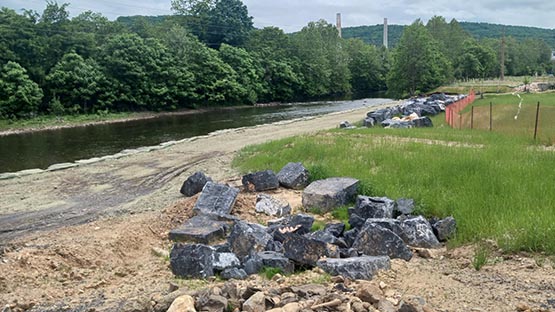
The EPA is revoking all uses of the pesticide chlorpyrifos, a pesticide on which many Virginia farmers rely, on food crops.
“While chlorpyrifos use has been declining as newer products become available, it is still an important pesticide for certain crops and a component of integrated pest management,” said Ben Rowe, national affairs coordinator for Virginia Farm Bureau Federation.
Chlorpyrifos is used on a variety of agricultural crops, including soybeans, fruit and nut trees, and vegetables. It’s particularly valued among peanut farmers, who use it to combat the damaging southern corn rootworm, also known as the spotted cucumber beetle. Adult beetles lay eggs in peanut fields, and the larvae burrow into the ground to feed on peanut pods, said Dr. Sally Taylor, associate professor of field crop entomology and a Virginia Cooperative Extension specialist.
“It’s the only labeled product that we have for that pest,” Taylor said. “Chlorpyrifos is applied to the soil before the rows overlap, so it’s in place when the larvae hatches. It’s like a preventive barrier.”
Researchers have been working to find replacement products to combat the peanut pests, Taylor said, but that research and product registration takes years.
Dell Cotton, the executive director for the Virginia Peanut Growers Association, said farmers will feel the impact of losing the pesticide.
“It just makes things very difficult for farmers who already have their backs against the wall for various reasons,” Cotton said. “Now to get one of the tools in their arsenal taken away from them that was still labeled to be used—that is very tough for us to process.”
Rowe cautioned that with the loss of chlorpyrifos, alternative products might not be as effective on certain pests. In addition, chlorpyrifos is “significantly less disruptive to beneficial insect populations than alternative chemistry, can help delay resistance development in all insecticides, and has a short-term impact on natural enemy populations.”
Rowe noted that the EPA’s decision goes outside the bounds of the standard regulatory review process for pesticides.
“Nothing is more important to farmers than producing safe, nutritious food, and relying on sound science to guide decision making, which is why farmers are concerned to see the EPA decision on chlorpyrifos straying from that commitment to science,” he said. “Yet today we see the EPA looking more to courtrooms for guidance, rather than labs. The integrity of the registration review process and commitment to using sound science must be prioritized in a decision of such far-reaching consequences.”
The EPA’s ruling affects the pesticide’s use on food crops only. Other nonfood uses are still permitted, such as applications on golf courses and for cockroach and ant treatment.










